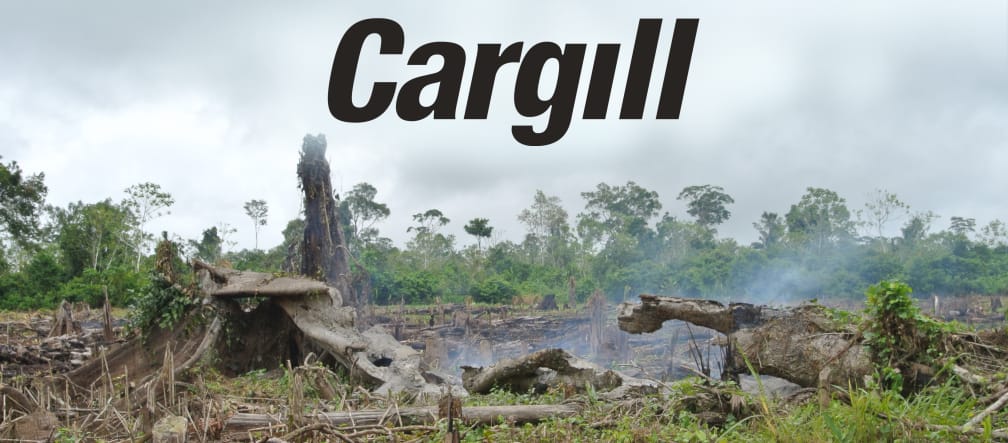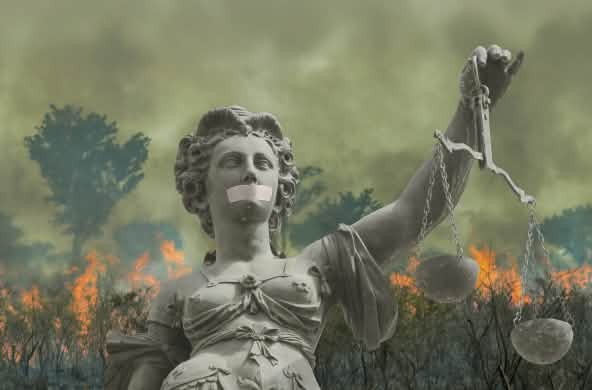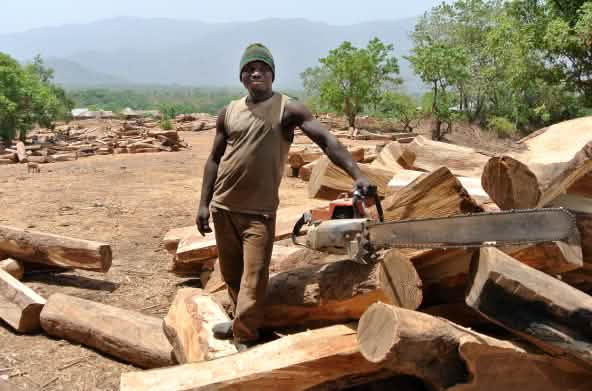
Completed campaign
Stop Cargill, the “worst company in the world”
Corporate arsonists are torching forests in Brazil — and the “worst company in the world” is likely to profit from the disaster: Cargill, an agribusiness giant responsible for environmental destruction and human rights violations on a massive scale, makes billions producing soy and meat in South America. We need to stop Cargill!
To: the management of McDonald’s, Burger King, Walmart, Unilever and others
“Cargill is responsible for massive environmental degradation and human rights violations. We call on you to drop Cargill from your suppliers.”Numerous corporations are guilty of trashing nature. Major chocolate manufacturers, countless palm oil producers and global fast-food chains are all driving the decline of the world’s forests, savannas and other ecosystems.
Yet when it comes to environmental destruction, Cargill dwarfs all the rest: If other corporations are piranhas, Cargill is a great white shark.
The US-based multinational has a long and sordid history of duplicity, deception and destruction that earned it the title “worst company in the world” in a report by the NGO Mighty Earth. The report describes in detail how Cargill profits from the destruction of the environment and the exploitation of people and how it blocks urgently needed changes.
- In Brazil, Argentina, Paraguay and Bolivia, Cargill is involved in the wholesale destruction of the Amazon, Grand Chaco and Cerrado ecosystems for the production of soy and beef.
- In Côte d’Ivoire and Ghana, Cargill buys cocoa that has been illegally grown in protected areas and national parks. The company also does not seem to have a problem with buying cocoa that was produced using child labor.
- In Indonesia and Malaysia, Cargill buys palm oil from companies that illegally clear rainforests and are involved in child and forced labor.
Cargill ignores those issues: profits come before ethics.
For years, Cargill has been pledging to eliminate deforestation, environmental degradation and human rights violations in his supply chain. That promise is a massive lie.
While consumers can hardly avoid Cargill, Cargill’s corporate customers – restaurant chains, supermarkets and consumer-goods companies such as McDonald’s, Burger King, Walmart, Unilever and hundreds more – can!
We we call on those companies to cut their ties with Cargill and to stop foisting Cargill products on consumers!
Further reading
New York Times: Amazon Deforestation, Once Tamed, Comes Roaring Back
Grist: How Cargill went from corporate hero to ‘the worst’
The Guardian: Three food companies with a climate footprint bigger than the Netherlands
Mongabay: Cargill rejects Cerrado soy moratorium, pledges $30 million search for ideas
Grist: Cargill promised to end deforestation. It’s telling farmers something else.
Cargill press release: Cargill pledges to protect forests in all agricultural supply chains
The company
Minnesota-based Cargill is the largest privately-held company in the United States. Its activities have generated enough wealth to create more billionaires in a single family than in any other company in the world.
Excerpts from the Mighty Earth report, “Cargill - The Worst Company in the World”
Cargill and soy
Across the South American frontier, Mighty Earth has tracked Cargill’s footprint. The 2017 report “The Ultimate Mystery Meat” investigated 28 different locations across 3,000 km of soy producing areas in Brazil and Bolivia. It showed that Cargill was one of the two largest customers of industrial scale deforestation. In addition to their role in creating a market for deforestation-based soy, the report found that Cargill finances land-clearing operations deep in virgin forest, building silos and roads, then buying and shipping grain to the US, China, and Europe to feed chickens, pigs, and cows.
In a follow-up report one year later Mighty Earth found that Cargill was still driving deforestation at some of the same sites first visited, despite the scrutiny. Between Cargill and its doppelganger Bunge, they had cleared the equivalent of 10,000 football fields for soy. Indigenous Peoples who depend on forests have been forced off of their traditional lands, had their land encroached upon by soy plantations, and have experienced sharp increases in cancer, birth defects, miscarriages, and other illnesses linked to pesticides and herbicides used to grow soy.
Cargill and cocoa
Cargill is one of just three companies that controls more than half of the global trade in cocoa, the raw material for chocolate. In 2017, Mighty Earth investigations traced cocoa from illegal operations in national parks, through middlemen, to these traders, who then sold it onto Europe and the United States where the world’s confectionary companies made it into chocolate. A 2018 report showed that in many places, deforestation had actually increased.
Ghana and Côte d’Ivoire are the world’s two largest cocoa-producing countries, and in both, the market for cocoa has been the primary driver of forest destruction. Investigation found that, for years, Cargill helped to drive the destruction of these countries’ forests to grow cheap cocoa — buying cocoa grown through the illegal clearing of protected forests and national parks as a standard practice.
As of 2015, an estimated 2.12 million West African children were still engaged in harvesting cocoa. Cargill’s current low-ambition pledge is to reduce – not eradicate – the “worst forms” of child labor in cocoa by 70% by 2020.
Cargill and palm oil
As one of the world’s largest importers and exporters of palm oil, Cargill has helped drive the alarming destruction of tropical rainforest and carbon-rich peatlands, contributing significantly to climate change and the deaths of more than 100,000 orangutans. The company has purchased palm oil from rainforest destroyers who have devastated the traditional territories of indigenous communities, and illegally burned rainforests and trafficked in slaves and child labor. Executives from one of its suppliers were fined and jailed for causing forest fires — contributing to a toxic haze from fires lit by palm oil and timber companies.
Fast food chains amongst biggest customers
McDonald’s is probably Cargill’s largest and most important customer. McDonald’s restaurants are essentially storefronts for Cargill. In the USA and Europe, Cargill not only provides chicken and beef to McDonald’s , they prepare and freeze the burgers and McNuggets, which McDonald’s simply reheats and serves.
Burger King’s practice in the USA and Europe of selling meat linked to Cargill and other forest destroyers has earned the fast food giant a ‘zero’ on the Union of Concerned Scientists deforestation scorecard. Burger King has asked Cargill to stop destroying forests in their supply chain…by 2030 – much too late.
Pledge to end deforestation
In 2014 at the United Nations Climate Summit, Cargill CEO David MacLennan stood beside UN Secretary General Ban Ki-moon to pledge action on climate change by “eliminating deforestation from the production of agricultural commodities such as palm oil, soy, paper and beef products by no later than 2020.” Cargill supported the “New York Declaration on Forests” – an empty promise.
To: the management of McDonald’s, Burger King, Walmart, Unilever and others
Ladies and Gentlemen,
Your major suppliers include Cargill – an organization that environmentalists have named “the worst company in the world”. According to a report by the NGO Mighty Earth, Cargill has exhibited “a disturbing and repetitive pattern of deception and destruction” that makes it responsible for massive environmental degradation and human rights violations.
- In Brazil, Argentina, Paraguay and Bolivia, Cargill is involved in the wholesale destruction of the Amazon, Grand Chaco and Cerrado ecosystems for the production of soy and beef. Cargill is taking advantage of Brazilian President Jair Bolsonaro’s devastating policies against indigenous peoples and the environment.
- In Côte d’Ivoire and Ghana, Cargill buys cocoa that was illegally grown in protected areas and national parks. The company apparently has no objections to buying cocoa that was produced using child labor.
- In Indonesia and Malaysia, Cargill buys palm oil from companies that have illegally cleared and burned down rainforests, and that are involved in child and forced labor.
For years, Cargill has been pledging to eliminate deforestation, environmental degradation and human rights violations in its supply chain. That promise is a massive lie. The company continues to bulldoze intact ecosystems.
Following the publication of Mighty Earth’s report, you can no longer ignore Cargill’s ruthless practices. By continuing to buy Cargill products, you and your company are aiding and abetting its crimes against nature and people.
There is only one solution: cut your ties with Cargill until the company changes its ways.
Cargill must:
- eliminate deforestation and environmental degradation from its entire supply chain
- guarantee complete transparency for its procurement activities and supply chain
- introduce environmentally friendly production methods such as agroforestry
- massively reduce greenhouse gas emissions
- respect the rights of indigenous peoples and the local population
- put an end to child labor.
Enough of Cargill’s lies!
Yours faithfully,

